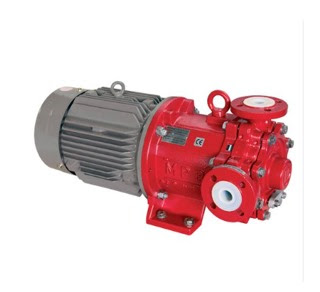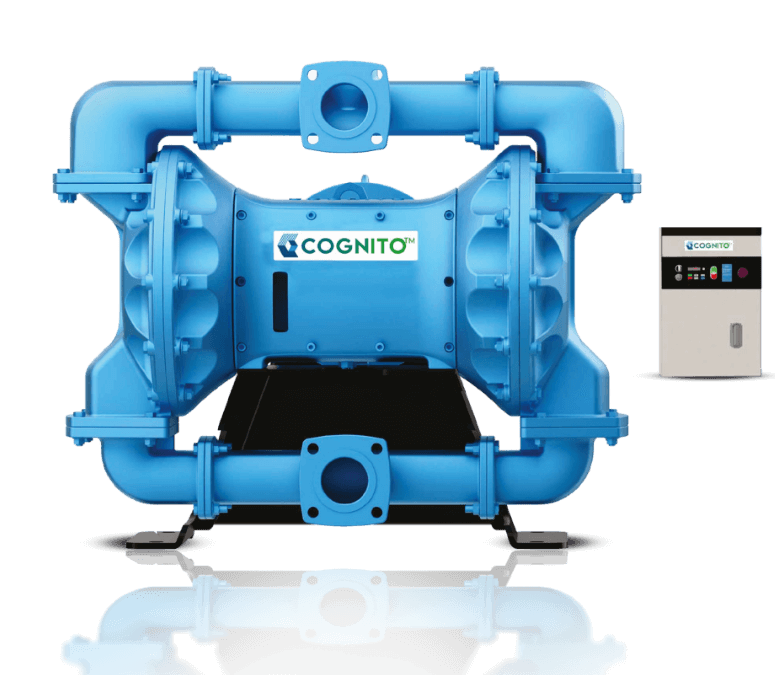What are the 3 major types of chemical pumps used?
 |
| What are the 3 major types of chemical pumps used? |
In the world of chemical production, there is an interplay of
processes, precise measurements, and robust machinery. A significant
contributor to this system is the chemical pump. These reliable devices
tirelessly facilitate the movement of liquids and harsh slurries to ensure
seamless operations and effective output.
Given the range of chemicals and tasks at hand, a single type of pump design is insufficient. This is where three primary types of chemical pumps step in:
Centrifugal pumps
Metering pumps
Positive displacement pumps
Each type possesses advantages tailored to requirements.
1. Centrifugal Pumps: The Backbone of Industrial Operations
Picture a spinning carousel—this serves as the concept behind centrifugal pumps, widely used in the chemical sector. These pumps employ a rotating impeller with blades that generate force within the liquid, propelling it outward through the discharge chamber.
Centrifugal pumps are also well known for their cost-effectiveness, making them a popular choice for a range of applications where financial considerations are crucial in selecting equipment.
IDEX Product: Richter Centrifugal Mechanically Sealed Pumps Sck
2. Metering Pumps for Precision Pumping Solutions
When accuracy is crucial, metering pumps come into play. These pumps excel at providing controlled and precise volumes of liquid, making them indispensable for tasks like chemical dosing, sample injection, and supplying instruments.
They provide flow control, ensuring reliable dosing of fluids essential for maintaining accurate chemical processes and guaranteeing product quality. Metering pumps have a flow rate range, allowing them to handle large liquid volumes effortlessly and providing flexibility in various application scenarios. Not just that, but metering pumps are also self-priming. They can draw liquid from low-level reservoirs, enhancing their versatility and efficiency in handling tasks in industrial settings.
When it comes to dealing with liquids, slurries, or handling pressure variations, positive displacement pumps stand out as the top choice. These pumps utilize mechanisms like pistons, gears, or screws to trap and move volumes of liquid in a reliable manner, regardless of the system's pressure.
Positive displacement pumps play a role in transferring thick substances such as resins, paints, and adhesives. Their precision in dispensing volumes of viscous chemicals is particularly valuable in sectors like chemical manufacturing and processing, as it ensures consistent dosing for optimal product quality.
Selecting the Right Pump and Finding the Balance
Choosing a chemical pump requires an assessment of various factors relevant to the industry and application. Key considerations involve evaluating properties like viscosity, abrasiveness, and compatibility with pump materials to ensure performance and durability. Understanding the flow rate is important as it determines the amount of liquid transferred per unit time, while knowledge of pressure requirements is vital for selecting a pump that can effectively overcome system resistance.
In addition, considering the requirements of the application, whether it involves dosing, transferring, or high-pressure tasks, helps customize the selection of pumps to meet the needs of the intended usage scenario. This ensures reliable handling processes in industrial settings.
By having a grasp of the advantages and limitations of each pump type (centrifugal, metering, and positive displacement), along with the expertise of a reputable manufacturer like IDEX, you can guarantee that your chemical operations run efficiently and effectively.
Exploring Advanced Features and Factors Beyond Basics
While the main categories of chemical pumps provide a foundation, there are advanced features and considerations that cater to specific industrial requirements. For instance, magnetic drive pumps enhance handling by eliminating contact between the motor and liquid chamber, reducing the risk of leaks and contamination. Ideal for corrosive chemicals, these pumps offer improved safety and dependability. Submersible pumps like IDEX's Proline series offer a solution for transferring liquids from tanks or pits while operating fully submerged in the liquid. With applications ranging from wastewater treatment to material management, these pumps offer solutions for fluid control.
Since safety remains a priority, taking into account factors such as compatibility, leak prevention, and explosion-resistant features is also necessary. IDEX addresses these concerns by offering pumps that comply with safety regulations for handling environments, emphasizing safety in chemical pumping activities.
Conclusion
Having knowledge of the characteristics and applications of the three types of chemical pumps (centrifugal, metering, and positive displacement) will help you navigate the selection process more effectively. Remember to take into account specialized features and safety standards and explore offerings from manufacturers to find the ideal pump for your specific chemical processing needs.



Comments
Post a Comment